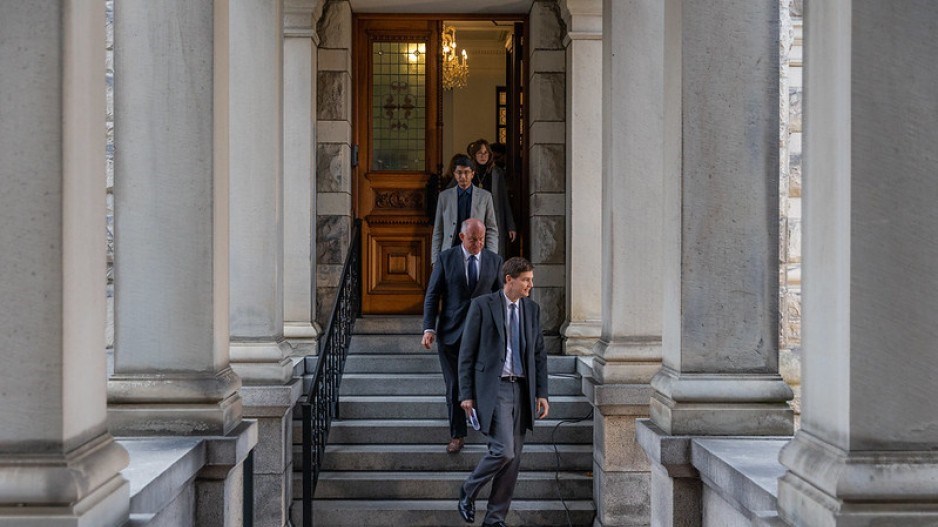B.C.’s civil service was abuzz this week after the new David Eby administration changed the rules on remote work, allowing thousands of government staff more certainty to work from home in an attempt to boost morale and encourage recruitment of people who live outside Victoria and Vancouver.
The policy changes came from Shannon Salter, Eby’s newly appointed deputy minister in charge of the public service, who is looking to modernize the culture around a workforce of more than 30,000.
“About half of the public service already has a flexible work agreement,” Salter said in an interview.
“But it's clear that, like other employers across the province, we're struggling to recruit and retain talent. We have a number of vacancies which are challenging to fill. And we're seeing people leave for opportunities outside of Victoria and Vancouver, and also [jobs] where they have more flexibility.
“So really, this is one step in a broader talent acquisition strategy that I'm hopeful will position B.C.’s public service as an employer of choice, not just in the short term, but in the long term.”
Salter outlined the changes Wednesday in a government-wide email.
Ministries are now “strongly encouraged to expand adoption of flexible work and have full discretion to do so,” she wrote.
The province will also make all jobs after April 1 available to anyone in B.C. whose community contains a ministry office, rather than forcing them to relocate to the government nerve-centres of Victoria or Vancouver.
That move is in part a response to the high cost of living in the two major urban areas, where even someone with a moderate government salary may find themselves barely able to afford rent, as well as permanently locked out of purchasing a home.
“It’s no secret that Victoria and Vancouver are expensive places to live, and to the extent that we can provide people with the opportunity to live in communities across the province and be able to create for themselves the very best life possible, that's going to enable us to attract from a much wider array of very qualified, talented people,” said Salter.
More than 3,000 government employees retired or quit in the last year, which was higher than the 2,400 people the year prior. The province attributes this in part to the competitive labour market luring away employees to other more lucrative and flexible employers.
The civil service changes could also boost diversity.
“Our government has made strong commitments to reconciliation and to diversity, and part of that is a commitment to increase the number of indigenous public servants, but in order to enable that, we can't be expecting people to dislocate themselves from their communities and their families to move to Victoria to join the public service,” said Salter.
The move is another significant shift in how Eby is overseeing his government as premier, compared to predecessor John Horgan.
Horgan largely deferred to the civil service, and centralized power in Victoria because he lived nearby.
Eby is notorious for pushing the bureaucracy, challenging its information and demanding it work at an uncommonly fast speed – all from his home base in Vancouver. That poses challenges as staff suffer burnout and fatigue following the heavy workload of COVID-19.
The pandemic also dramatically changed the work culture inside government. Staff were told to work from home for more than a year and a half, before the Horgan government began setting a series of ambitious dates to return to more in-person attendance. Many employees pushed back and preferred to stay home.
“We have learned a huge amount during the pandemic, and also over the past year we’ve learned about how people can work, what tools were necessary and we’ve also learned a lot about what the public service is looking for in terms of their needs, and leverage that to best serve the public,” said Salter.
“So I think in many ways this is a natural next step.”
It’s also the natural next step for the Eby government. The new premier better recognizes that some civil servants would rather quit than come back to the office. As he pushes the bureaucracy to the limit to meet his fast-paced political agenda, allowing civil servants to work remotely from home and in other communities is a trade-off Eby seems willing to make.
Rob Shaw has spent more than 14 years covering B.C. politics, now reporting for CHEK News and writing for Glacier Media. He is the co-author of the national bestselling book A Matter of Confidence, and a regular guest on CBC Radio.



